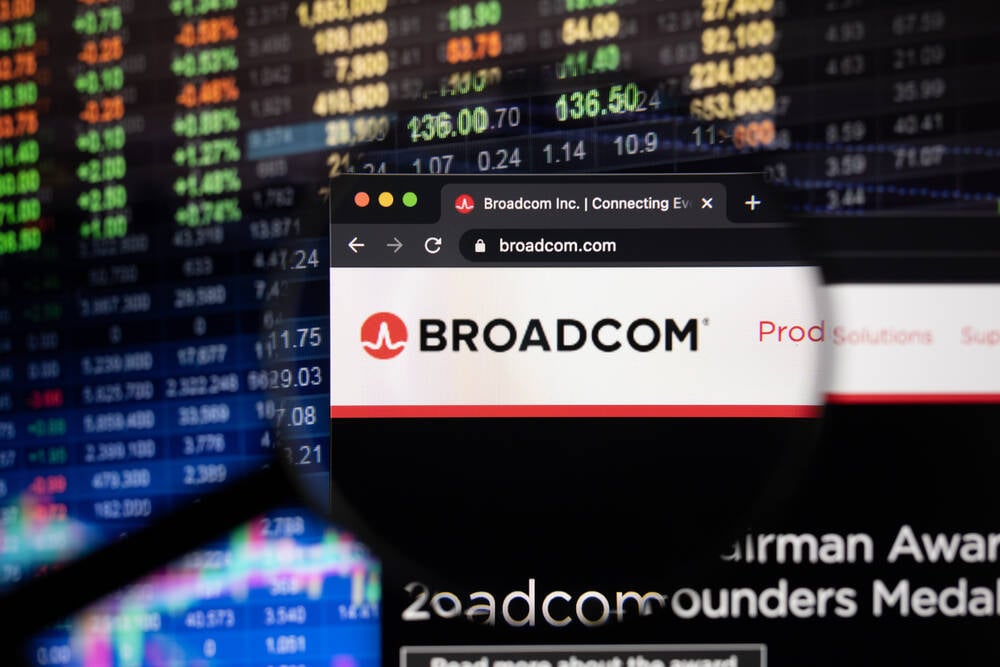
VMware’s quarterly revenue appears to have fallen by $600 million during its first full quarter of ownership by Broadcom, which revealed strong growth in forward bookings and huge cost cuts at the virtualization giant.
Speaking on Broadcom’s Q2 2024 earnings call, CEO Hock Tan announced VMware revenue for the quarter came in at $2.7 billion. Broadcom’s quarter ended on May 5 – as did pre-acquisition VMware’s Q1 2024 when, in June 2023, it reported [PDF] $3.28 billion revenue for the period.
Hock Tan did not compare the results or explain whether they reflect changes like shuffling Carbon Black out of VMware into Symantec, or the imminent spin-out of VMware’s end-user compute products into a new entity – a deal expected to close this financial year. Broadcom has said those two businesses produced $2 billion of annual revenue, meaning the dip in pre-acquisition VMware’s quarterly revenue could be around $100 million – a change perhaps attributable to seasonal variations.
The CEO did tell investors that Broadcom is “making good progress transitioning all VMware products to a subscription licensing model” and that 3,000 of the 10,000 largest VMware customers have signed for multi-year deals.
The CEO enthused about VMware’s increasing annualized booking values – a metric of commitment to long-term contracts – which rose from $1.2 billion last quarter to $1.9 billion this time around. He added that Broadcom sees “a lot of interest” from customers looking to VMware’s portfolio as a means to build on-prem private clouds “as a nice complement, maybe even alternative or hybrid, to public clouds.”
Costs are also well down at VMware – from $2.3 billion a quarter to $1.6 billion. Tan told investors Broadcom targeted quarterly costs of $1.4 billion, but is on track to exit 2024 with costs at $1.3 billion – and can reduce them further to $1.2 billion. Rumors of further layoffs are already circulating.
“We are making very strong progress integrating VMware and accelerating its growth,” Tan declared, noting that $2 billion has already been spent on restructuring and integration costs before predicting revenue from the business unit “will accelerate towards $4 billion per quarter run rate.”
With VMware predicted to have lower costs and higher revenue, Tan also forecast higher margins across Broadcom’s software business.
And that business appears to be in good shape, with quarterly revenue of $5.3 billion from the combined VMware, CA, and Symantec. In the same quarter of 2023 the division, then without VMware, won $1.9 billion of revenue. That means the CA and Symantec businesses have added $700 million of revenue year over year – an endorsement of Broadcom’s approach to running software businesses.
On the silicon side
Broadcom’s silicon business also fared well. Revenue of $7.2 billion represented a six percent year-over-year improvement.
Tan told investors that revenue from AI-related products “stepped up 280 percent year on year to $3.1 billion, more than offsetting continued cyclical weakness in semiconductor revenue from enterprises and telcos.”
Networking revenue grew 44 percent year on year to reach $3.8 billion, thanks to “strong demand from hyperscalers for both AI networking and custom accelerators.”
“It’s interesting to note that as AI datacenter clusters continue to deploy, our revenue mix has been shifting toward an increasing proportion of networking,” Tan observed, noting that networking silicon accounted for 53 percent of semiconductor revenue in the quarter.
Part of that growth is due to hyperscalers using Ethernet to connect their GPUs – a trend Tan predicted will mean “Next year, we expect all mega-scaled GPU deployments to be on Ethernet.” That’s a big endorsement of the venerable protocol, even as Nvidia proclaims its NVlink networking tech does a better job of allowing accelerator fleets to work in parallel.
Tan asserted that Broadcom definitely sees itself as an Nvidia competitor in the network, but won’t go head-to-head with it for GPUs. ASICs are a different matter: Tan said Broadcom is more than happy to help hyperscalers build custom chips for AI accelerators.
Growing demand for AI-related silicon and anticipated growth at VMware saw Broadcom increase its guidance for FY 2024 to $51 billion – a billion more than forecast in its Q1 result, which itself was an upgrade.
Total revenue for the quarter came in at $12.5 billion, with net income of $2.1 billion. Broadcom also announced a ten-for-one stock split in July, which will make its scrip easier to acquire given that its share price finished the trading day at $1,495 and topped $1700 in after the bell trading. ®
- SEO Powered Content & PR Distribution. Get Amplified Today.
- PlatoData.Network Vertical Generative Ai. Empower Yourself. Access Here.
- PlatoAiStream. Web3 Intelligence. Knowledge Amplified. Access Here.
- PlatoESG. Carbon, CleanTech, Energy, Environment, Solar, Waste Management. Access Here.
- PlatoHealth. Biotech and Clinical Trials Intelligence. Access Here.
- Source: https://go.theregister.com/feed/www.theregister.com/2024/06/13/broadcom_q2_2024/



